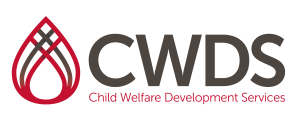CWDS Curriculum
Sexual Abuse Case Considerations and Planning
Level: Advanced Practice – Lineworkers and Supervisors
Credits: 6
Intended Audience: Child Welfare Line workers and/or Supervisors
Description of Course: Sexual abuse is shrouded in silence and secrecy, so when such cases come to the attention of CWS, proper handling of the case at all levels is crucial to the ongoing physical and psychological safety of the child(ren) and family. This course will review dynamics of sexual abuse, the impact of trauma to the child, and case planning with both elements in mind. Family specific case plans should include specialized treatment for all family members with clear goals and behaviorally identified objectives that assist in determining visitation parameters and reunification decisions, utilizing a trauma-informed and team approach.
Intended Objectives:
- Trainees will list and discuss commonly held CSA myths and recognize their own bias’ through the use of a Bias screening tool
- Trainees will list and discuss sexual abuse dynamics as related to the victim; offender, and non-offending caretaker
- Using a video clip and/or case scenario of a sexual abuse family, trainees will identify the danger and risk factors; impact of abuse on child; and strengths/protective factors
- Trainees will recognize best practice assessment, treatment, and case management practices (monitoring, visitation, reunification) in sexual abuse cases
- Using a video clip and/or case scenario of a sexual abuse family, trainees will create/write a behaviorally specific case plan
Topics Include:
- Awareness of myths and bias’ as it relates to sexual abuse cases
- Review of sexual abuse dynamics/characteristics as relates to the child victim, offender, and non-offending caretaker (NOC)
- Understanding the ramifications and effects of sexual abuse to the child and family system
- Review of best practice guidelines as related to assessment, treatment, and case management decisions with sexually abusive families
- Creating and maintaining physical and psychological safety when making visitation and reunification decisions
- Creating action-based and behaviorally specific case plans for sexual abuse cases
Assessment and Investigation
Interventions, Services & Resources



